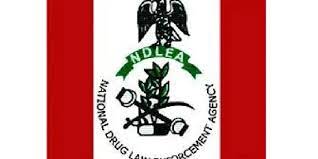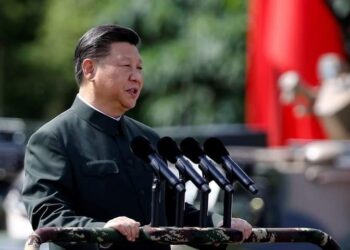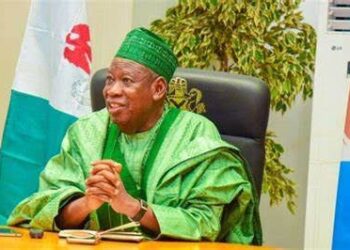The outlook of the ongoing aggressive drug war being driven by the Chairman/Chief Executive Officer, National Drug Law Enforcement Agency (NDLEA), General Buba Marwa (rtd), draws keen attention to the mandate of the agency’s operations and results over the years. Before the present administration of the agency, the NDLEA, saddled with the responsibilities of monitoring the cultivations, processing, selling, exporting, trafficking of hard drugs and curbing the menace of drug abuse, was weak.
This was largely attributed to lack of funding, poor equipment or working tools, logistics, lack of training, poor staff welfare and low morale, all summed up in uninspiring leadership. No security agency as sensitive as NDLEA can fight crimes effectively, get result-oriented enforcement operations and actualise its mandate unless the challenges of dysfunctional equipment, lack of serviceable vehicles, modern gadgets for effective monitoring and intelligence gathering, among others, are addressed.
Before now, the operations of the agency were frustrating. For instance, the agency used to engage the services of commercial motorcyclists to help in pursuing fully armed and dangerous drug peddlers, which often ended in futility. This posed a huge drawback in counter narcotics operations. The use of common carriers exposes the operatives to high risk, leading to loss of lives of many agents in the course of their official duty. This demoralised personnel im carrying out this herculean task.
Another issue was poor staff welfare like delayed or denied promotion. There were backlogs of promotions between eight to ten years. Where it was done, it was alleged to have been done with disregard to guidelines or regulations. But when the General took over, he knew that if the NDLEA would work under him, he had to correct these challenges.
One of the tools NDLEA and other relevant agencies need is sustainable training and development to enable operatives meet up with the core objectives of the organisation in line with global best practice. Imagine a scenario whereby staff deployed to forests do not have necessary weapons, gadgets for communication/surveillance with a view to tracking and arresting illicit drug offenders. Thankfully, this has been corrected as this empowerment system has been restored.
There were challenges of comprehensive and modern rehabilitation centers to manage cases of drug addiction and to ensure that addicts are well treated and properly re-integrated into the society, empowered for self sustenance, and then contribute meaningfully to the growth and development of their community and the country at large.
It is only a few government-owned clinics that are adequately staffed and equipped for treating and managing health cases arising from drug addiction. Most of the privately-owned clinics are so expensive that they cannot be accessed by drug users, which is one of the reasons we have patches of torturing and spiritual houses using all manner of crude therapeutic methods which, in most cases, end up counterproductive.
This is very disturbing because, the young men and women who are supposed to be future leaders are mismanaging and destroying their lives through consumption of all kinds of drugs.
It has been reported that over 10million youths and students in tertiary institutions are engaged in smoking of cannabis, lizard excreta, sniffing of pit toilets, petrol, animal dungs, sewages, glue, tramadol, rohypnol, diazepam, codeine mixtures, and pentazocine without knowing the health implications and hazardous effects of their actions. These have become a common lifestyle among youths all over the country.
The resultant effects are low academic performances, truancy, character bankruptcy and dementia suffered by consumers. It is unfortunate that children of all classes in our society are involved in this destructive practices. The well-to-do in the society have compounded the situation by concealing the involvement of their children and wards from the primed eyes of NDLEA operatives.
Many national and international reports have confirmed that drug abuse has been a major catalyst for the rise in rape, kidnapping, cultism, terrorism, armed robbery and banditry and other vices.
Thus, NDLEA declared a state of emergency on drug abuse in order to urgently address the issues surrounding it. So far, the results are commendable and should be sustained. The federal government should therefore provide necessary resources to support NDLEA’s ongoing result-oriented campaigns nationwide.
It is on this premise that, like other well-meaning Nigerians, I consider the appointment of Marwa as a round peg in a round hole especially, having chaired an earlier taskforce to assess the level of substance abuse in Nigeria, its implications and solutions.
Indisputably, Marwa has a towering integrity. He was governor of Borno and Lagos states, Nigeria’s high commissioner to South Africa, a security expert, courageous leader who is ready at all times to set records in any position he occupies. The retired combatant soldier is a strategic thinker, consummate intellectual, reformer and a visionary leader who will not sit and watch ineptitude occasioned by structural and administrative challenges.
Recall the memorable success story of “operations sweep” which he initiated in Lagos state. It was a joint taskforce made up of the police and army aimed at reducing Lagos notorious crime rate when he was governor of the state.
Based on these antecedents, we are sure that he is equipped with enough experience and strategic thinking needed to revamp NDLEA so that Nigerians can have respite from the activities of drug barons. Our prayers and expectation are that there should be a sustainable teamwork among all the agencies both local and international towards effective performance.
I recommend commitment from Nigerians in supporting Marwa-led NDLEA as no individual or agency is capable of solving the problems associated with illicit drugs; it requires collective efforts by all stakeholders.
Ebo writes from Abuja.




